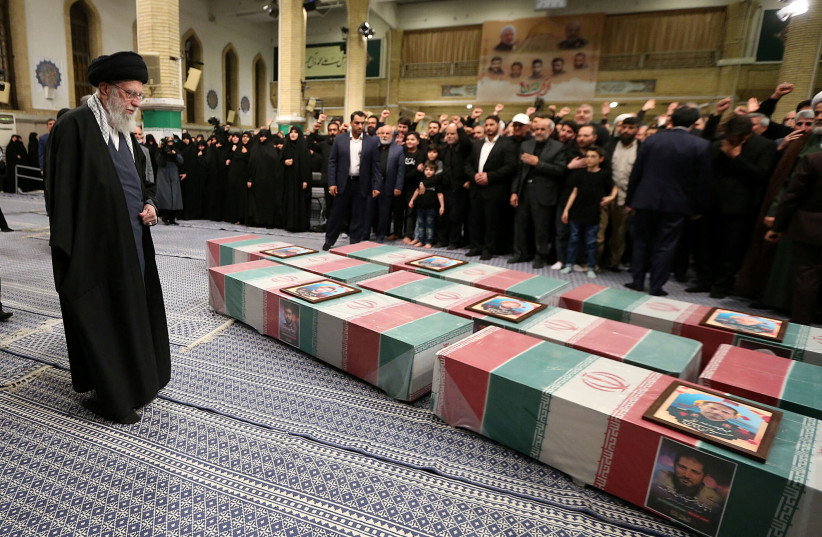Iran is expected to attack Israel between the next 24 to 48 hours, with an exclusive Thursday report by the Wall Street Journal saying that the Jewish state is "preparing for a direct attack" on the north or south of the country.
The report cited an individual who was briefed by Iranian regime leadership stated, "no final decision has been made" as attack plans have been discussed.
The attack is in response to the alleged Israeli strike on the Iranian consulate in Damascus, Syria, which killed several members of the Islamic Revolutionary Guard Corps’ Quds Force. Tehran then publicly threatened to respond to the attack.
A previous Wednesday report from Bloomberg, citing US intelligence reports, said that the US and allies predicted that an Iranian attack on Israel "could be imminent." However, the WSJ cited a source saying that the attack could be "within Israel's borders."
Earlier this week, the IRGC contacted the country's Supreme Leader Ayatollah Ali Khamenei with options to strike Israeli interests, the Journal reported, citing an adviser to the paramilitary force, with the report also saying that in recent hours, IRGC-associated social media accounts posted videos showing simulated missile attacks on Israel’s Haifa airport in the north of the country, and its nuclear facility in Dimona which is in the south.
The report also notes Khamenei's concern if an attack could backfire, for example, in a scenario where Israel would intercept its projectiles and then retaliate with strikes on Iranian strategic infrastructure, with an advisor saying that "he is still weighing the political risk." Scenarios of Iran attacking include utilizing its proxies in Iraq and Syria, the report noted, or attacking the country's embassies in other countries, notably those located in Arab countries.
Israel plans to respond
Israel, however, made it clear that it would respond to any Iranian attack, as Prime Minister Benjamin Netanyahu said, “Whoever harms us, we will harm them,” during a visit to the Tel Nof Air Base.

Spokesperson Rear-Adm. Daniel Hagari told reporters on Thursday night that Israel is "on a high state of alert and preparedness." Additionally, Israel has threatened to disrupt Iran's cyber infrastructure.
The same day, the US Embassy in Israel told its staff not to travel outside the greater Tel Aviv, Jerusalem, and Beersheba areas amid the Iranian threat and would be restricted from doing so.
French President Emmanuel Macron said he had warned Iran not to attack Israel in a conversation with Knesset Speaker Amir Ohana. Additionally, the German and British foreign ministers, Annalena Baerbock and David Cameron, called on their Iranian counterpart to ask Tehran not to attack Israel, the Journal sourced British and Iranian officials as saying.
A couple of days earlier, on Sunday, Iranian nuclear scientist Mahmoud Reza Aghamiri said that the construction of a nuclear weapon is not complicated for a nation like Iran.
Tovah Lazaroff, Benjamin Weinthal, Jerusalem Post Staff, and Reuters contributed to this report.
